Pongal is over but Jallikattu remains banned. Yet there is an over 3,000-strong crowd, comprising mostly of young students and techies, currently protesting in Chennai’s Marina Beach.
They are protesting against the state and central government’s failure to allow Jallikattu to happen. They are also protesting against animal rights group PETA for running a ‘campaign of lies’ against the sport, Times of India reported.
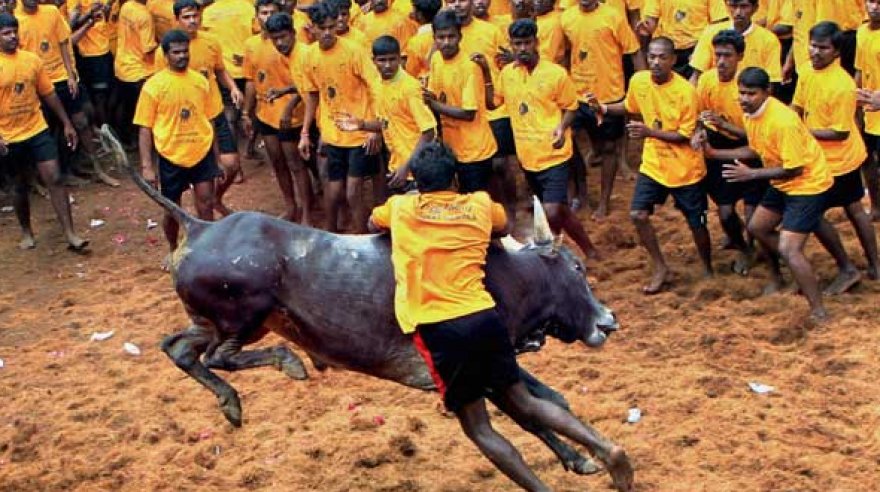
After the anti-Hindi agitations of the 1960s, this is perhaps the only issue to have stirred the state of Tamil Nadu in its entirety. What is surprising is the large number of students and urban youth that have come out to join politicians and rural protesters against the Supreme Court ban on Jallikattu.
But what is Jallikattu? Why has it got almost all factions of Tamil Nadu up in arms? Let’s take a brief look at its history and timeline.
What is Jallikattu?
‘Eru Thazhuvuthal’ or Jallikattu is an ancient bull-taming bloodsport where bulls are made to charge in an arena, only to be tamed by participants, usually men. As the bull is let loose through the ‘Vaadi Vassal’ or the entrance to the arena, into the cheering crowd that swerves and ducks to prevent being hit by the charging bull, participants then try to tame the charging bull by climbing on to its hump and riding the bull for a particular distance.
The gathered crowd does more than just cheer. Jallikattu is a heavily betted upon sport in TN, and every year, the total amount of money placed as bets on the outcomes may cross Rs 900 crores.
A brief legal timeline
- In 2004, animals rights groups in India including People For the Ethical Treatment of Animals (PETA) started protesting against Jallikattu.
- In 2010, SC allowed Tamil Nadu state government to practice Jallikattu for five months in a year under certain regulations.
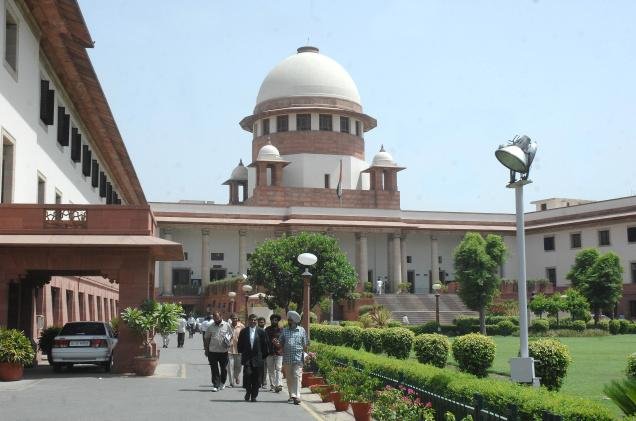
- Bullfights continued under Tamil Nadu Regulation of Jallikattu Act No 27 of 2009. From 2008 to 2014, Jallikattu was practiced in TN under certain court specified regulations. After Animal Welfare Board of India’s investigations, it came to light that several of these regulations are being flouted.
- In 2011, the Ministry of Environment and Forests (MoEF), under the then UPA government had issued a notification against the use of bulls as ‘performing animals’ in sports.
- In 2014, based on findings of the Animal Welfare Board of India (AWBI), a SC bench passed a judgement upholding the 2011 notification banning the use of bulls as ‘performing animals’ for sports such as Jallikattu, bull-cart races etc. It claimed the use of these animals in these events was against Sections 3, 11(1)(a) and 11(1)(m)(ii) ofthe Prevention of Cruelty Towards Animals Act (1960).
- In January 2006, the NDA government issued a reversal of the ban by stating that Jallikattu was not part of the sports that the 2011 notification included. The SC however upheld its ban, thus causing statewide protests in TN last year.
- In Jan 2017, two days before Pongal, the SC rejected a plea challenging the ban on Jallikattu, claiming it wasn’t fair to ask the SC to decide at this point right before Pongal.
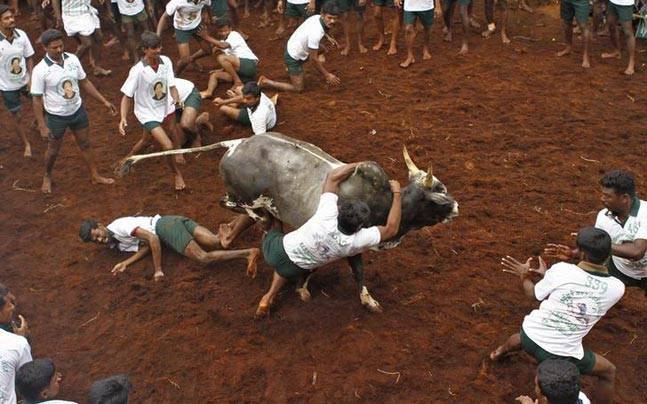
Why was it banned?
According to AWBI findings, bulls used in the sport were physically harassed and faced several kinds of abuses such as slaps to the face, beating with sticks and nails. Thick ropes were inserted inside the nostrils of the bulls in order to literally pull them by their noses.
“You basically see bulls having tails bitten, being stabbed with sickles, agitated, stuff rubbed into their eyes with twenty people jumping on him,” animal rights activist and advocate Rudra Krishna told NDTV.
AIWA also found that the regulations mandated by the court such as using only registered bulls and registered transporters etc for the sport were being flouted. Many reports and videos by animal activist groups also indicate that the bulls are intoxicated and weakened with alcohol prior to the sport.
The bench banning Jallikattu found that the sport was not only “inherently cruel” to the animals but can also harmful to the hundreds of spectators who gather in circles around these fights. From 2010 to 2014, at least 1,100 people have been hurt in Jallikattu-like sports, Firstpost reported.
Why are Tamilians angry?
Political parties in TN have been asking the SC to pass an ordinance allowing Jallikattu. CM O Panneerselvam has made his and his party’s stance clear: He will follow in former CM and AIADMK Chief Jayalalithaa’s footsteps and demand for the passage of the ordinance against the ban as his predecessor had done before him.
Tamilians claim that Jallikattu, a sport which can be traced back to almost 5,000 years, is part of Tamil culture and tradition and that the ban on the sport is robbing the state of its heritage. According to historians, bull-taming has been existing as a sport since the Indus Valley Civilisation, and it even continued in the British era.
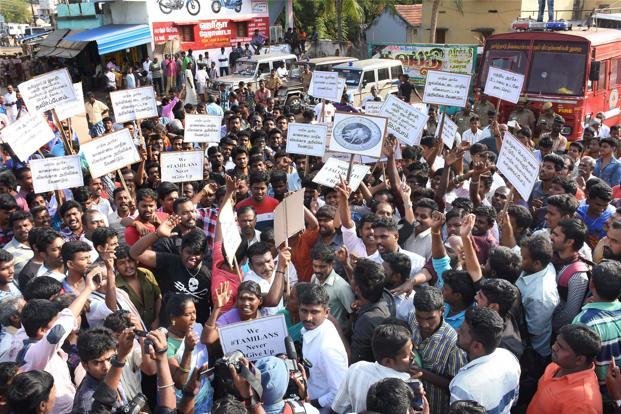
Another argument in support of the sport is that it a cattle-rearing sport. Villagers raise bulls specifically for the sport. The bulls that prove their mettle in the sport are then put on display and sold for high prices to other Jallikattu enthusiasts, or used as stud bulls to service cows in its area. According to a report in BBC, the sport was intrinsic for the continuation of the breeding of several native breeds.
Politicians from both AIADMK and the opposition (DMK) have raised this point, claiming the ban will severely impact cattle rearing in the state, which already suffers from a cattle depletion.
Current status
As of now, Jallikattu remains banned. A symbolic Jallikattu event was held for some minutes in Tamil Nadu during Sankranti. Tamilians are blaming the state and central government for failing to protect the Tamil identity and culture. They are also seeking an ordinance allowing Jallikattu.
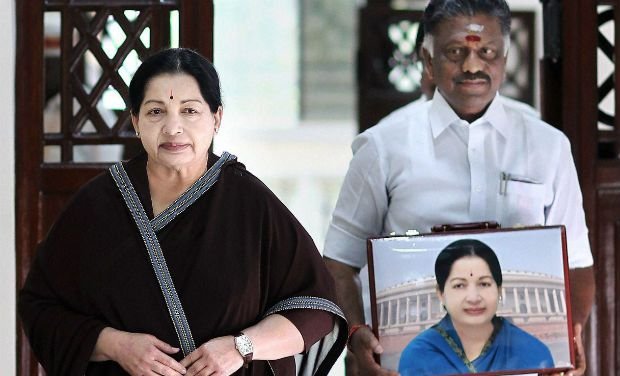
Popular actors such as Kamal Haasan, Dhanush, Suriya and several other Tamil stars have opposed the ban.
The issue has also seen massive support from non-political student bodies and Tamil rights groups at an almost unprecedented level.
The Centre has supported the stay on the ban, with leading BJP leader Subramanium Swamy writing an open letter to SC arguing how the sport was completely lawful. The BJP state President for TN, Tamilisai Soundararajan, has said that supporting the Tamil agitation will bring BJP closer to the people of the state and may bring about a poll victory in the state, Indian Express reported. Tamilians are also demanding a ban on PETA.
Animal rights groups and wildlife activists however have maintained their stance of animal cruelty. As of now there are several stakeholders and all of them are waiting for the SC’s final decision on the matter.
Feature Image Source: Reuters

















